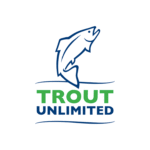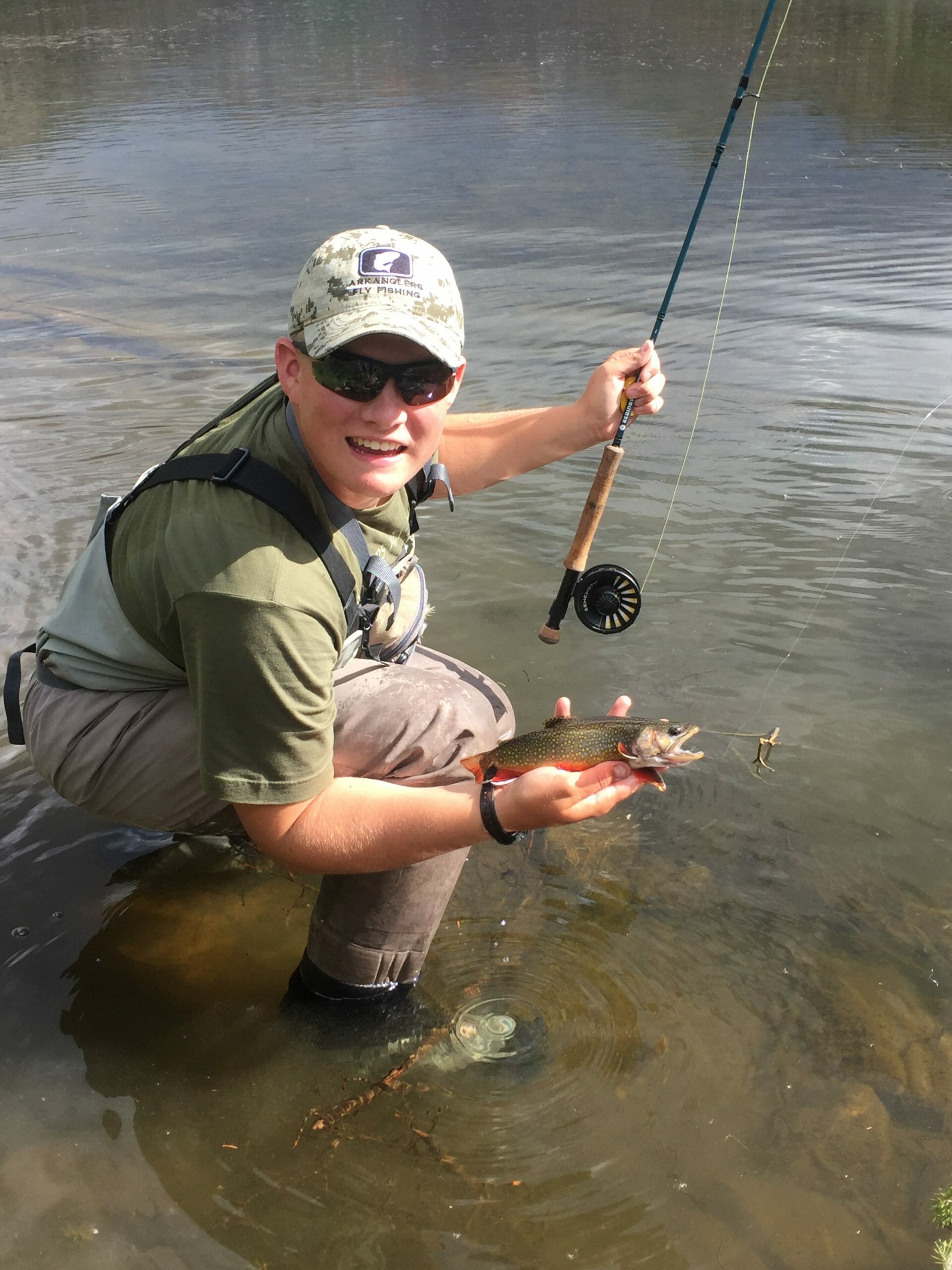Editor’s Note: Each year, participants at Trout Unlimited regional Youth Fly Fishing and Conservation summer camps are invited to enter the TU Teen Camp Essay Contest. The prompt for 2019 was “Why is conservation important to fly fishing?” We received many wonderful entries and are pleased to share the top five essays over the course of this week. To find a camp near you in 2020, visit www.tu.org/camps
By River Smith – Honorable Mention
Fly fishing is most often portrayed as fishing in pristine wilderness with a beautiful waterfall overhead, while delicately casting intricately precise hand tied flies to a subtly rising trout in a rushing riffle. This is only a reality to an elite few who have access to these resources. In actuality, most anglers have a fishable body of water, whether it be a small farm pond, rural lake, a delicately flowing steam or a majestic river, within just 10 miles of their home.
The sport fish which can be found in these places include: largemouth and smallmouth bass; northern pike; brown trout; brook trout; steelhead; and salmon. Many of these bodies of water have a beautiful way of connecting you with nature. When you arrive at your favorite fishing spot on your favorite body water, you will always find yourself losing track of time, while you stalk your beloved finned prize.
Nature is beautiful, quiet, pristine, and wholesome. That’s the way nature is supposed to be. Unfortunately, most people are unable to leave it the way they found it. There are people who don’t care about our natural resources. Therefore, we need communities of people who will protect and preserve what we have been given.
When you leave a simple plastic water bottle by your fishing spot, it will impact the environment for the next 450 years, plus as it degenerates it will leach toxic plastic chemicals into our hydrologic system. It doesn’t only affect the plants and animals on land, it also affects the fish. It’s painful to see river recreationists leaving pop cans on my favorite river and watching plastic bags float beside me while fishing.
Some anglers like to turn a blind eye towards the garbage, thinking that it is someone else’s problem. But what they don’t understand is that it will catch up with them in a matter of speaking. What I mean is that every time they let that piece of litter continue on its path, it will only continue to harm the environment until their favorite past time (fly fishing) becomes extinct.
Garbage, trash, litter, refuse, toxic waste, whatever you may call it is a serious problem in our environment. Conservation is essential to keeping our natural resources intact for future generations of outdoorsmen whether they be fly fishermen, hunters, hikers, photographers, or campers. Water is one of life’s purest resources.
How often are we hearing more and more news stories related to access to clean water? Industry needs to realize that not only does pollution damage our drinkable water supply it damages the ecosystem that hundreds, perhaps thousands of organisms rely on.
We as fly fisherman know how complex a waters ecosystem is. We already learn to read conditions such as water temperature, sediment type, sunlight, the current diet of the fish, how to imitate it with a fly, and time of year. We should not have to equate how pollution will affect these variables.
Many times while I’m fishing, whether it be a small babbling rural brook or a swiftly flowing river like the Au sable, I have seen a pop can floating in an eddy, or a plastic water bottle caught in the branches of downed trees. This refuse in our water systems not only looks bad, it’s bad for the aquatic insect hatches, which in turn is bad for the trout, and it even could impact the number of trout. Nature deserves our fullest attention. We can begin by diligently removing any and all trash that we create while out on our adventures. We can also partner with organizations such as Trout Unlimited to do yearly river clean ups.
Fly fishing is a wonderful sport and a pastime that brings joy to many people. The natural resources that make fly fishing possible should, and can, be here for future generations to enjoy. We must choose to preserve, protect and restore.
River is a member of the Schrems West Michigan Trout Unlimited Chapter.



